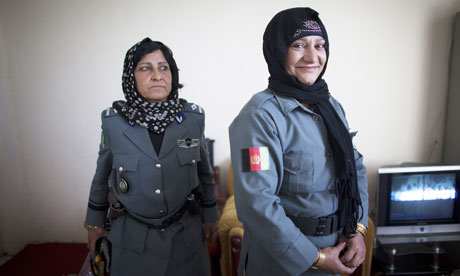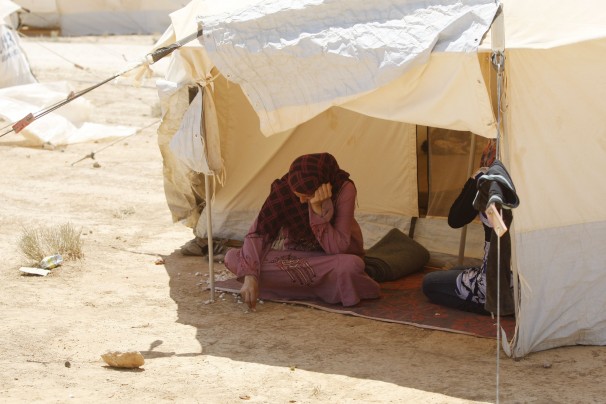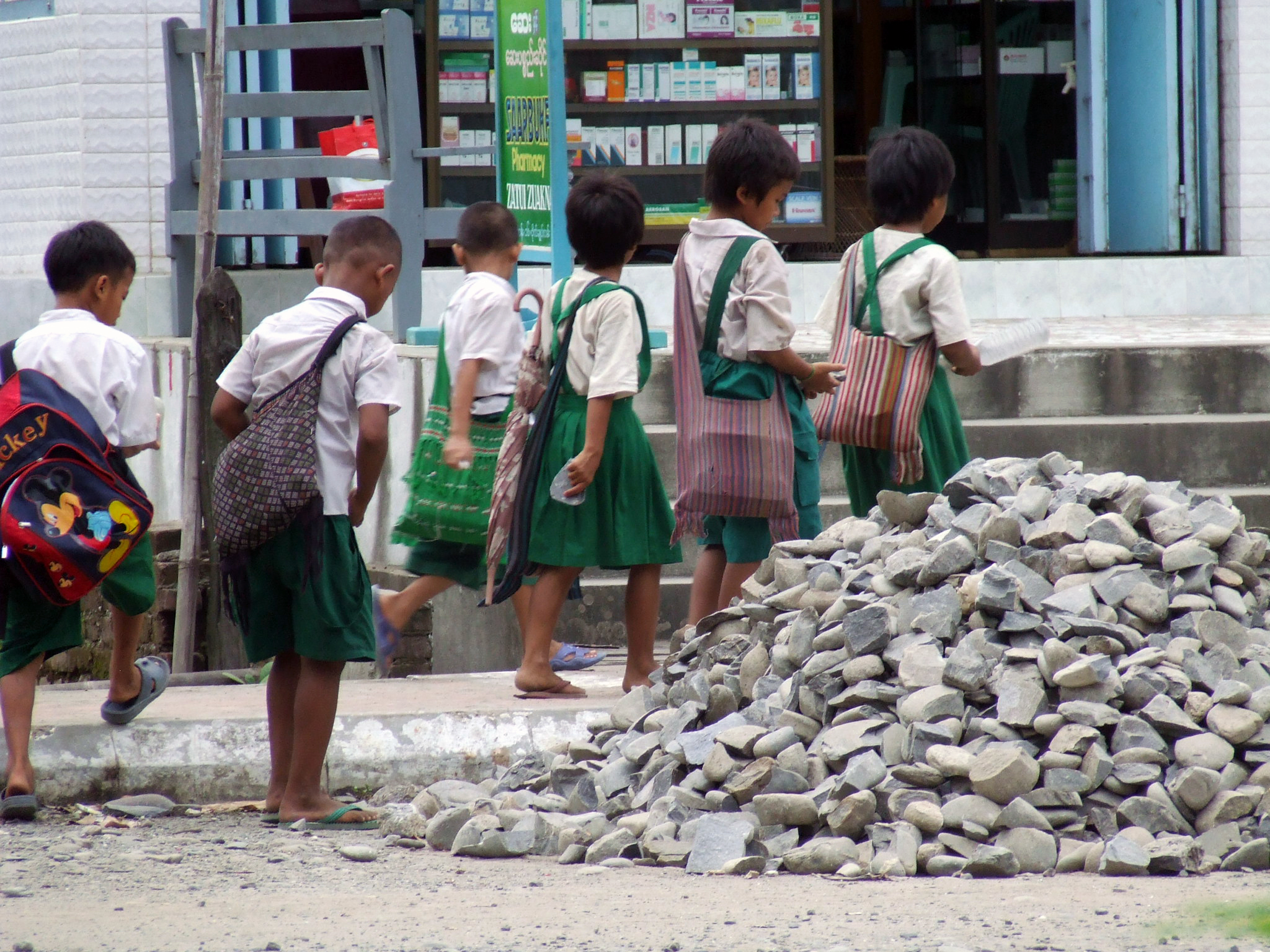Helmand Police Headquarters, located in the heart of one of the most insecure regions in the world, is home to the fiercest female police officers in Afghanistan. After reaching the end of a long dark corridor in the main building, you arrive at the quarters where the 32-members of the Helmand Female Police Department are stationed. They form one of the largest female police squads in Afghanistan. Their job is perilous; they chase the Taliban, search suicide bombers disguised in Burqas and are the first to enter each muddy house during searches of the female areas where male police officers are not permitted; a convenient safe space for terrorists.
The department is a large solitary room. It has no toilet facilities, no locker room to change their uniforms, and no kitchen to cook their food. They cover their faces with black scarves, wear heavy boots, and in some cases choose to dress in male uniforms. “It is hard to be a female officer in Afghanistan,” 2nd Lt. Nigara says, as she holds her newborn child in her arms. She sits on the ground, boiling water to make the morning tea. It is morning in Lashkargah and the officers are waiting for their commander, Islam Bibi. “Everywhere I go I am afraid that I’ll be killed. They killed many of us, who knows, I am the next person.” This morning Islam Bibi is late. It is unusual for her. She has always arrive promptly, taking her job seriously and ready to deploy her officers to the next mission at a moments notice.
On the other side of the city, a crowd is forming around a shooting scene. One witness said he heard 3 shots, others say 10. A motorbike was thrown to the side of the road, its wheels still spinning. Just beyond the crowd you could see a woman’s purse and a cloth bag strewn across the street. One of the men in the crowd said, “She is a police officer, somebody call the police headquarters.”
Yes, on the 4th of July unknown gunmen killed Islam Bibi, Lashkargha’s top female officer, as she rode to work. Omar Zawak, spokesperson for the Governor of Helmand confirmed, “while Officer Islam was traveling towards work with her son in law, she was attacked by unknown gunmen. She died in the hospital from her wounds.”
Islam Bibi, 37, mother of 4 sons and 2 daughters, was born in Kunduz province. She joined the Afghan security forces in Helmand 10 years ago, forging a path that she knew would gain her many enemies. As a commander in chief of 32 female officers, she participated in many dangerous operations and successfully arrested members of the Taliban infiltrating the city. For her, everyday was a fight not only against the Taliban and the tribal lords, but also against her own family. “My brother, father and sisters were all against me. In fact my brother tried to kill me three times,” said Islam Bibi in her last interview with The Telegraph. So who killed Islam Bibi: her family in an attempt to regain the lost tribal honor, or the Taliban who would have seen her as an obstacle to their operations.
Being a female police officer is not easy in Afghanistan. The conservative tribal culture, dominating the social fabric of the southern and eastern part of Afghanistan, sees women who work outside the home, particularly where men and women are together, as a stain on the name of the family and honor of the tribe. Consequently, every man takes it as his responsibility to clean this stain, knowing that he will not face retribution. Instead, he gains respect; after all he saved the honor of the tribe.
Similar to past murders of Afghan female officers, such as the killing of Lt. Malalai Kakar, head of the Kandahar female police squad in 2008, Najia Sediqi head of the Women’s Affairs Department in Laghman province, and dozens of other Afghan women who died in the line of duty, the killing of Islam Bibi will likely remain unsolved. No formal investigation will ever be launched, and no one will ever be held accountable. Once a famous name associated with the success of Afghan women in security forces, Islam Bibi is already fading from the consciousness of Afghans. In Afghanistan women’s efforts to change their country are too easily dismissed and forgotten simply because of their gender. “I love my country […], I want to try to make Afghanistan a better and stronger country,” said Islam Bibi. This was her wish for a country that barely recognized her right to exist.




